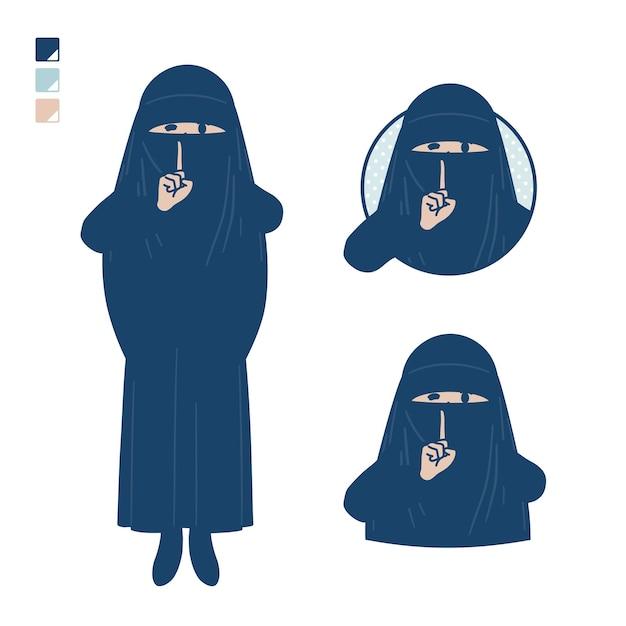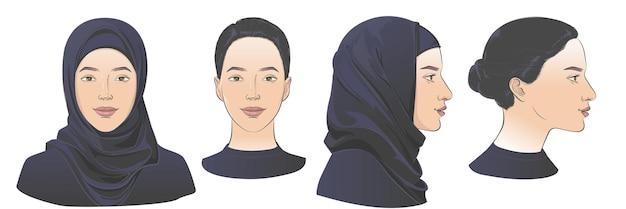As we delve into the topic of wearing a burqa, it is essential to recognize that discussions surrounding personal attire, religious beliefs, and cultural practices are often complex and sensitive. In this blog post, we will explore the concept of wearing a burqa from various perspectives, aiming to foster understanding and shed light on this controversial subject.
With the advent of the internet and increased global connectivity, conversations regarding religious practices and expressions of modesty have become more widespread. From the concept of “Haya” in Islam to the reasons individuals turn to religion, we will examine the factors that influence the choice to wear a burqa or other forms of modest dress. Additionally, we will touch upon the differences between a burqa, a niqab, and a hijab, clarifying the various terms and their roles within different faiths and societies.
This blog post will delve into the question of whether wearing a burqa is mandatory, providing insights from religious texts and diverse cultural perspectives. We will also touch on recent debates, such as the ban on burqas in France, highlighting the sociopolitical aspects surrounding this issue. Join us as we navigate this nuanced subject with open-mindedness, respect, and a desire for greater understanding.

Is it mandatory to wear a burqa?
In the diverse world we live in today, cultural practices and religious beliefs vary greatly from one community to another. One topic that often ignites heated discussions and debates is the wearing of the burqa. Let’s explore whether wearing a burqa is mandatory or not, and shed some light on the cultural, religious, and personal factors involved.
The Islamic Perspective
Within Islamic teachings, the concept of modesty is highly valued. Some interpret the Quran as requiring women to cover their bodies, including their hair, with a burqa or other modest clothing. However, it’s important to note that the interpretation of religious texts can differ among scholars, leading to diverse practices. In certain countries and communities, the burqa may be seen as obligatory, while in others, it may be viewed as a personal choice or cultural tradition.
Cultural and Regional Norms
The wearing of a burqa is often associated with certain regions and cultural traditions. In societies where the burqa is prevalent, it may be seen as a cultural norm rather than a religious obligation. For example, in some parts of Afghanistan and Saudi Arabia, women commonly wear the burqa as part of their everyday attire. However, it’s crucial to remember that cultural practices evolve over time, and not all women from these regions adhere to burqa-wearing.
Personal Choice and Empowerment
In many cases, the decision to wear a burqa lies with the individual woman. Some women choose to wear it as an expression of their faith, modesty, or personal convictions. On the other hand, many women decide against wearing the burqa, opting for different styles of modest clothing or no head-covering at all. It’s important to respect a woman’s agency in choosing how she expresses her faith and identity.
Legal and Political Considerations
Laws and regulations related to the burqa vary from country to country. In certain nations, such as France and Belgium, restrictions have been placed on wearing the burqa in public spaces due to concerns over security, identification, and integration. These laws aim to balance religious freedom with societal concerns. It’s essential to be aware of the legal context when discussing the mandatory nature of wearing a burqa.
In conclusion, the question of whether it is mandatory to wear a burqa is complex and multifaceted. It depends on a combination of religious interpretation, cultural norms, personal choice, and legal considerations. It’s crucial to approach this topic with sensitivity, recognizing the diversity of beliefs and practices within and across communities. Ultimately, it is up to each individual woman to decide how she wishes to express her faith, identity, and level of modesty. Let’s foster understanding and respect in our discussions surrounding the burqa and other cultural practices.

FAQ: Is it mandatory to wear a burqa?
What is Haya and why is it important in Islam
In Islam, Haya refers to modesty and humility. It is an integral part of Islamic teachings and encourages individuals to behave and dress modestly. While wearing a burqa is one way to express Haya, it’s important to note that Haya encompasses more than just clothing. It extends to one’s actions, speech, and overall demeanor.
Is wearing a burqa compulsory in Islam
The question on everyone’s mind: Is wearing a burqa mandatory? Well, the answer is not as straightforward as you might think. While some interpretations of Islamic teachings encourage women to wear a burqa as a form of modest dress, it is not universally required by all Muslim scholars. The decision to wear a burqa ultimately depends on an individual’s personal beliefs and cultural customs.
Why do some prisoners turn to religion and adopt the burqa
Ah, the eternal question of why prisoners find religion behind bars. There are many reasons why individuals in prison turn to religion, and adopting the burqa is just one aspect of this. For some, it provides a sense of structure, purpose, and hope during a difficult time. Religion can serve as a source of solace and guidance, and the burqa may symbolize a fresh start or a break from their past.
What is niqab in Islam and why do some women choose to wear it
Niqab, commonly mistaken for a ninja costume by onlookers, is actually a face-veil worn by some Muslim women. It covers the face, leaving only the eyes visible. The decision to wear niqab varies among individuals and is often driven by religious, cultural, and personal reasons. Some women choose to wear niqab as an expression of their devotion to Islam or as a means of fulfilling their understanding of modesty.
Is hijab allowed in Norway
Move over, Vikings! Yes, hijab is indeed allowed in Norway. The country respects religious freedom and ensures individuals’ rights to practice their faith, including wearing hijab. Although Norway is known for its chilly weather, it warms up to the idea of embracing diversity and respecting different religious practices.
What does Awrah mean in Islam and how does it relate to modesty
Awrah, not to be confused with a famous Lion King character, refers to the parts of the body that should be covered and kept modest in Islam. It varies between men and women, with some scholars suggesting that women’s awrah includes everything except the face and hands, while men’s awrah is from the navel to the knee. Observing the rules of awrah is an essential aspect of practicing modesty in Islam.
What is modesty in Islam and why is it emphasized
Modesty in Islam goes beyond outward appearances and clothing choices. It is about having humility, purity of intention, and avoiding behaviors that draw attention or promote immodesty. It is rooted in the belief that modesty is a virtue that promotes self-respect, mutual respect, and preserves the sanctity of individual relationships. Islam emphasizes modesty as a means to achieve a balanced and spiritual lifestyle.
Which religions embrace the practice of wearing burkas
While burkas are often associated with Islam, it’s important to note that other religions and cultures also have their own forms of modest dress. In addition to some Muslim communities, certain conservative Christian and Jewish sects also advocate for modest attire that includes veiling or covering parts of the body. Modest dress is a common thread that runs through various religious traditions.
Why did France ban the burqa
Ah, the land of baguettes and haute couture! France, known for its fashion-forward trends, caused a stir when it implemented a ban on the burqa. The decision was sparked by concerns surrounding identity and security. French authorities believed that wearing a full-face-covering burqa hindered effective communication and challenged the principle of equality, as it was perceived as a form of oppression. While controversial, the ban aimed to promote integration and adherence to French societal norms.
And there you have it, a comprehensive Q&A session on the ever-debated topic of wearing burqas. Whether you choose to wear a burqa or not, remember that the most important thing is to respect and support individuals’ freedom to express their faith and beliefs in a manner they find meaningful. Stay stylish, stay respectful, and keep asking those thought-provoking questions!
